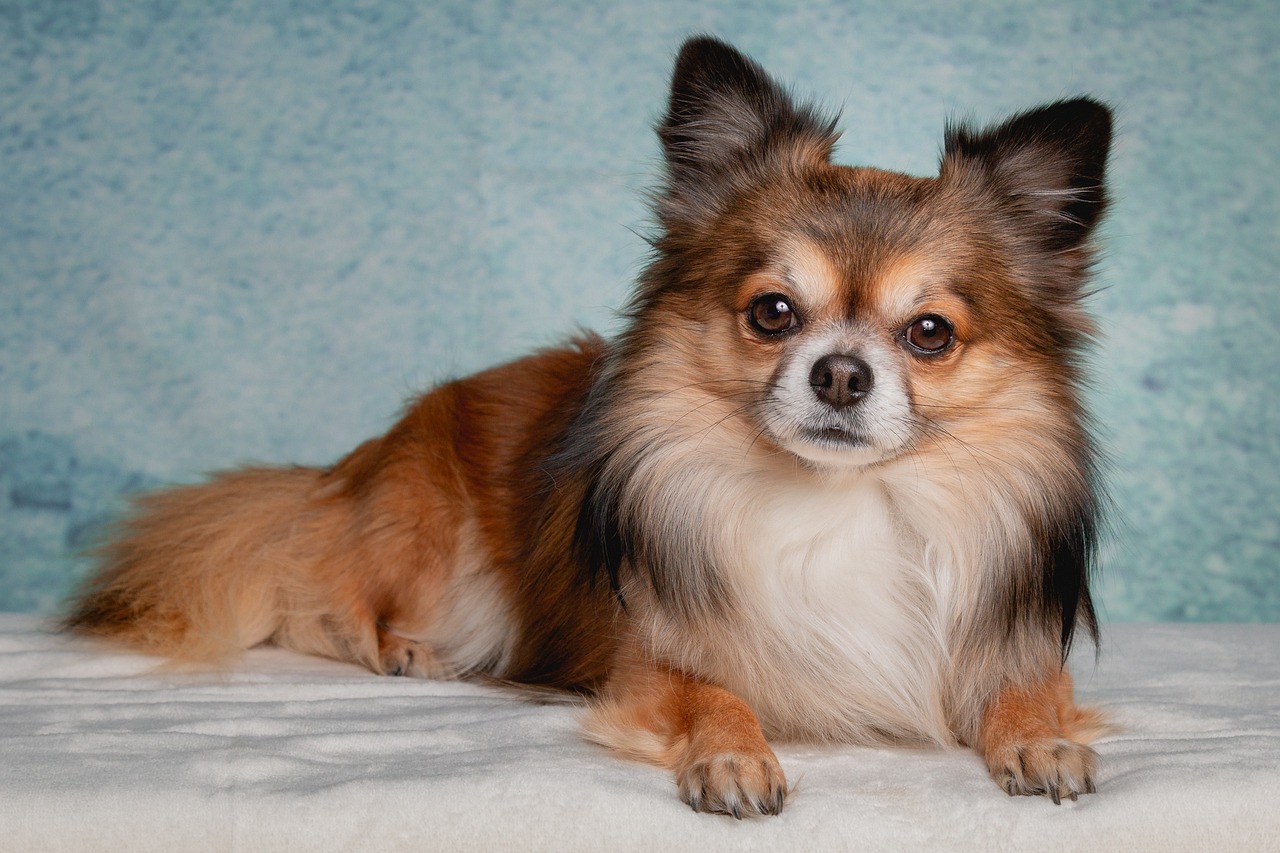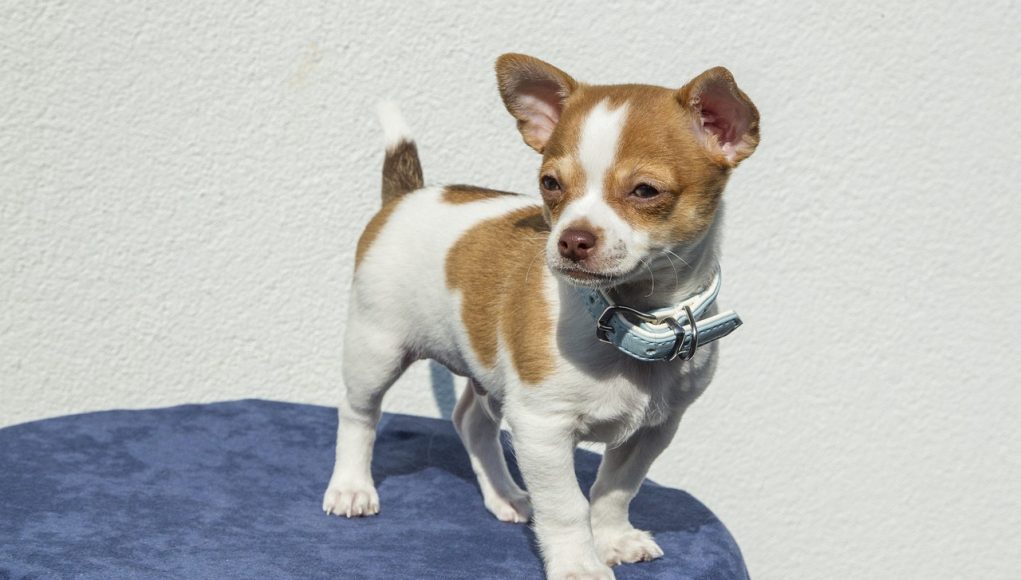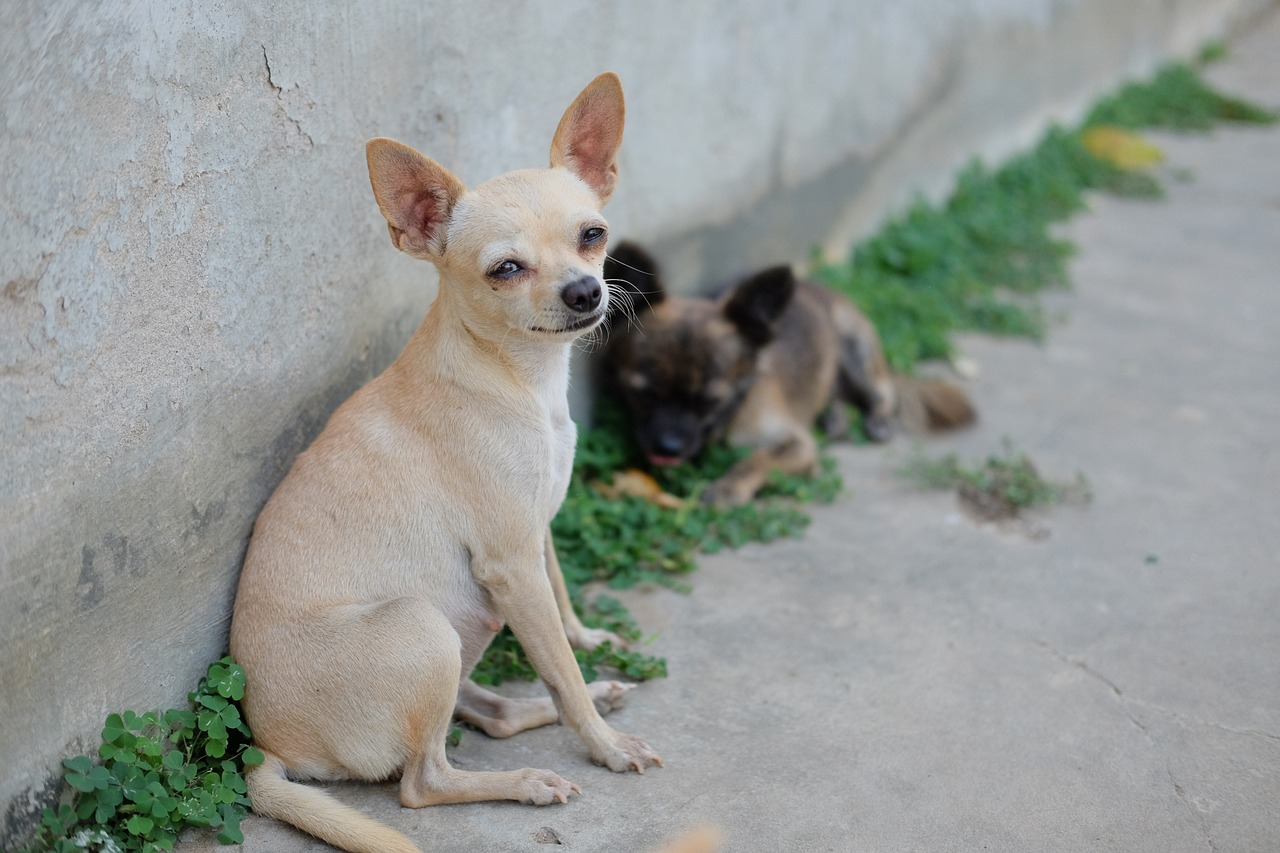The Chihuahua, one of the world’s smallest dog breeds, is known for its big personality and loyalty to its owners.
This tiny breed may be small in stature, but it has a bold and lively temperament, making it a popular choice for dog lovers around the globe.
Chihuahua : A Complete Guide to This Dog Breed
Whether you’re considering adopting a Chihuahua or simply want to learn more about this feisty breed, this article provides a comprehensive overview of the Chihuahua, including its history, physical characteristics, temperament, care needs, and health concerns.
The Origins
The Chihuahua is thought to be descended from the Techichi, a companion dog of the ancient Toltec civilization in Mexico. The breed’s modern history begins in the 19th century, when American tourists visiting Mexico discovered these tiny dogs and brought them back to the United States.
The breed was named after the Mexican state of Chihuahua, where they were first found. Since then, Chihuahuas have become one of the most popular toy breeds in the world, admired for their spunky attitude and devotion to their owners.
Fun Fact: Chihuahuas are often associated with ancient Aztec and Mayan civilizations, where they were believed to have had spiritual significance and were even considered to possess healing powers.
Physical Characteristics
Chihuahuas are known for their small size, large ears, and expressive eyes. Despite their tiny stature, they have a striking appearance and carry themselves with confidence. Here’s a detailed look at their physical traits:
- Size: Chihuahuas are the smallest recognized dog breed, typically weighing between 2-6 pounds (0.9-2.7 kg).
- Height: They stand about 5-8 inches (13-20 cm) tall at the shoulder.
- Coat Type: Chihuahuas come in two coat varieties: smooth-coated and long-coated. Smooth-coated Chihuahuas have a short, glossy coat, while long-coated Chihuahuas have a soft, flowing coat that may be slightly wavy or straight.
- Coat Color: Chihuahuas come in a wide range of colors, including fawn, black, white, chocolate, cream, and blue. They may also have a variety of markings, such as spots, brindles, or masks.
- Morphology: Chihuahuas have a well-proportioned body with a slightly rounded skull, known as an “apple head,” and large, round eyes. Their ears are large and erect, adding to their alert and curious expression.
- Distinctive Features: One of the most distinctive features of the Chihuahua is its tiny size, combined with its bold, alert stance. Their large, expressive eyes and prominent ears give them a confident and curious appearance.
Comparison: Compared to other small breeds like the Yorkshire Terrier, Chihuahuas tend to have a more compact and delicate frame, but they share a similar confidence and strong attachment to their owners.

The Temperament of the Chihuahua
Despite their small size, Chihuahuas are known for their big personalities. They are loyal, energetic, and often form strong bonds with their owners, making them excellent companions for individuals and families alike.
- Interaction with Children: While Chihuahuas are affectionate with their owners, they can be a bit wary of small children, especially if not properly socialized. Due to their small size, they can be easily injured by rough handling, so supervision is essential when they are around young children.
- Behavior with Other Animals: Chihuahuas tend to get along well with other dogs, particularly if they are raised together. However, they may exhibit a “big dog” attitude, sometimes challenging larger dogs, so early socialization is important. They generally adapt well to households with other pets if introduced properly.
- Training Tips: Chihuahuas are intelligent but can be stubborn at times. They respond well to positive reinforcement, and consistent, gentle training is key to preventing small dog syndrome, where the dog believes it is the leader of the household. Early socialization and training are important to ensure they grow into well-behaved adults.
Care Needs for the Chihuahua
Chihuahuas are relatively low-maintenance dogs, but they do have specific needs, particularly when it comes to their size and coat type.
- Coat Maintenance: For smooth-coated Chihuahuas, regular brushing once a week is sufficient to keep their coat looking shiny and healthy. Long-coated Chihuahuas require more frequent grooming, with brushing at least two to three times a week to prevent tangles and mats. Both coat types benefit from regular baths to keep their skin and coat clean.
- Exercise Requirements: Despite their small size, Chihuahuas are energetic dogs that need regular exercise to stay healthy. Daily walks and playtime are enough to meet their activity needs. They enjoy playing indoors, but also benefit from safe outdoor activities. Because of their size, they are well-suited to apartment living, as long as they get sufficient mental and physical stimulation.
- Hygiene and Specific Care: Dental care is particularly important for Chihuahuas, as they are prone to dental issues like tooth decay and gum disease. Regular tooth brushing and professional dental cleanings are essential for maintaining their oral health. Additionally, their large eyes may require regular cleaning to prevent irritation or infections.
Common Health Issues
Chihuahuas are generally healthy dogs, but like all breeds, they can be prone to certain health conditions. Being aware of these potential issues can help ensure your Chihuahua stays healthy throughout its life.
- Dental Problems: Due to their small mouths, Chihuahuas are prone to dental issues, including tooth decay and gum disease. Regular dental care is essential to prevent these problems.
- Luxating Patella: This condition, where the kneecap slips out of place, is common in small breeds like the Chihuahua. In severe cases, surgery may be required.
- Hypoglycemia: Chihuahuas, particularly puppies, can be prone to low blood sugar, which can cause weakness, lethargy, and even seizures. Feeding them small, frequent meals can help prevent hypoglycemia.
- Heart Problems: Chihuahuas can be prone to heart issues, including heart murmurs and mitral valve disease. Regular veterinary check-ups can help monitor and manage any potential heart conditions.
- Life Expectancy: Chihuahuas have an average lifespan of 14-16 years. With proper care, regular veterinary visits, and a healthy lifestyle, they can live long, happy lives.
Life Expectancy and Quality of Life of Chihuahuas
On average, Chihuahuas live between 14 and 16 years, with some living even longer with proper care. Their quality of life depends on regular health care, proper exercise, and attention to their unique needs as a small breed.
- Maximizing Quality of Life: To ensure your Chihuahua lives a long and healthy life, provide regular exercise, a balanced diet, and plenty of affection. Dental care and regular veterinary visits are essential for maintaining their overall health. Chihuahuas thrive in environments where they are loved and treated as part of the family.
Pros and Cons of Owning a Chihuahua
Advantages:
- Chihuahuas are small and portable, making them ideal for apartment living and travel.
- They are loyal and form strong bonds with their owners, making them excellent companion dogs.
- Their grooming needs are relatively low, especially for smooth-coated Chihuahuas.
Disadvantages:
- Due to their small size, Chihuahuas are fragile and can be easily injured, especially by rough handling.
- They may be prone to « small dog syndrome » if not properly trained, leading to stubborn or aggressive behaviors.
- Chihuahuas can be prone to health issues, particularly dental problems and heart conditions, requiring diligent care.
What to Know Before Adopting
Chihuahuas are best suited for owners who can provide them with the care and attention they need. They thrive in homes where they are treated as part of the family and given plenty of affection. Ideal owners include individuals or families with older children who understand how to handle small dogs gently.
Before adopting a Chihuahua, it’s important to understand the breed’s health and grooming requirements, as well as its temperament. Consulting with breeders or rescue organizations can help prospective owners determine if the Chihuahua is the right fit for their lifestyle.
Comparing the Chihuahua with the Pomeranian
Both the Chihuahua and the Pomeranian are small, lively dogs with big personalities. However, while Chihuahuas have a more delicate frame and are known for their strong attachment to one person, Pomeranians tend to have a fluffier coat and a slightly more independent nature. Both breeds are intelligent and energetic, but Chihuahuas tend to be a bit more territorial.
Chihuahuas are small, bold, and loyal companions that bring a lot of personality into any home. Their small size makes them ideal for apartment living, but their big personalities mean they need proper training and socialization.
With the right care and attention, Chihuahuas can provide many years of love, companionship, and joy to their owners.









